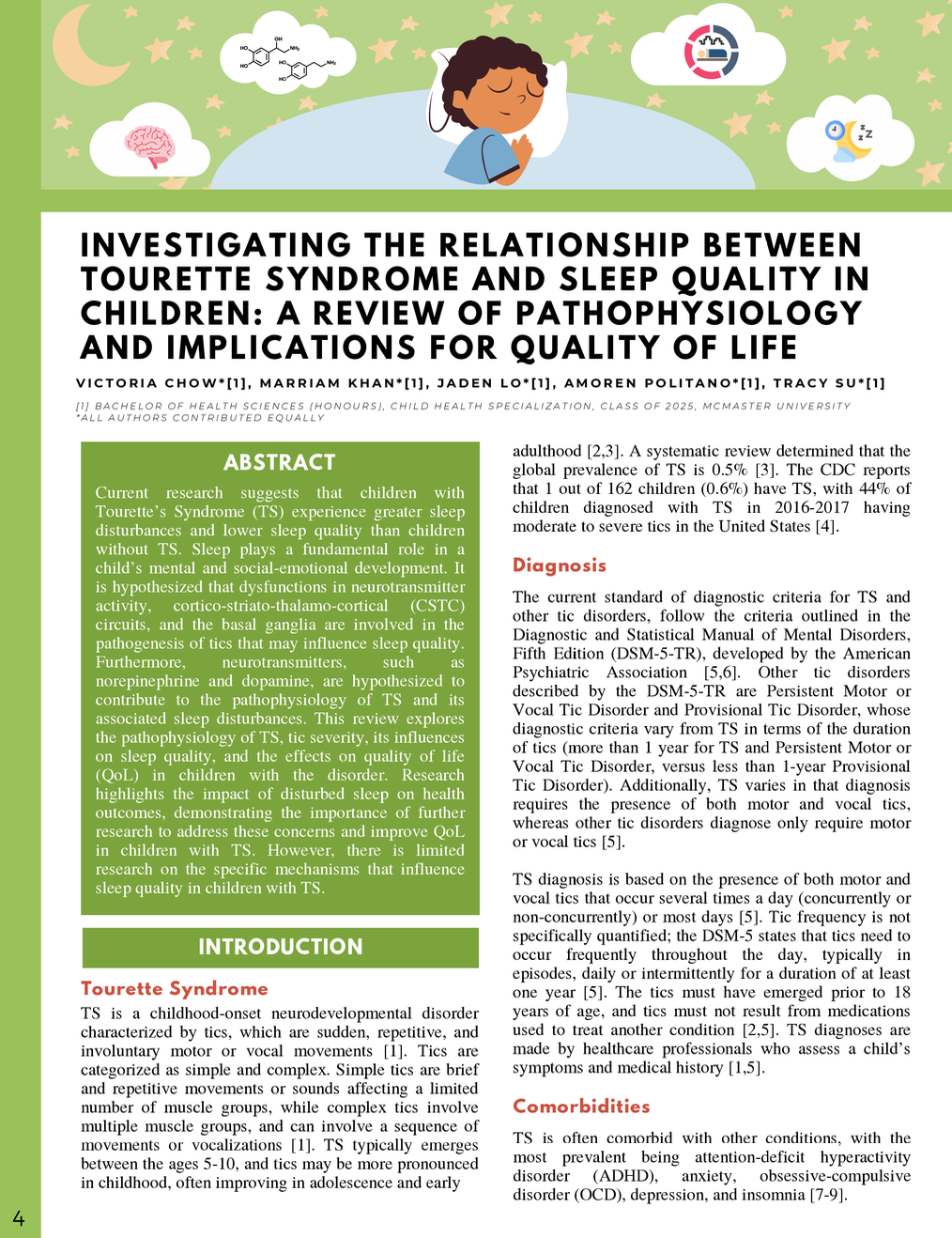Investigating the Relationship Between Tourette Syndrome and Sleep Quality in Children: A Review of Pathophysiology and Implications for Quality of Life
DOI:
https://doi.org/10.15173/child.v3i1.3898Abstract
Current research suggests that children with Tourette’s Syndrome (TS) experience greater sleep disturbances and lower sleep quality than children without TS. Sleep plays a fundamental role in a child’s mental and social-emotional development. It is hypothesized that dysfunctions in neurotransmitter activity, cortico-striato-thalamo-cortical (CSTC) circuits, and the basal ganglia are involved in the pathogenesis of tics that may influence sleep quality. Furthermore, neurotransmitters, such as norepinephrine and dopamine, are hypothesized to contribute to the pathophysiology of TS and its associated sleep disturbances. This review explores the pathophysiology of TS, tic severity, its influences on sleep quality, and the effects on quality of life (QoL) in children with the disorder. Research highlights the impact of disturbed sleep on health outcomes, demonstrating the importance of further research to address these concerns and improve QoL in children with TS. However, there is limited research on the specific mechanisms that influence sleep quality in children with TS.

